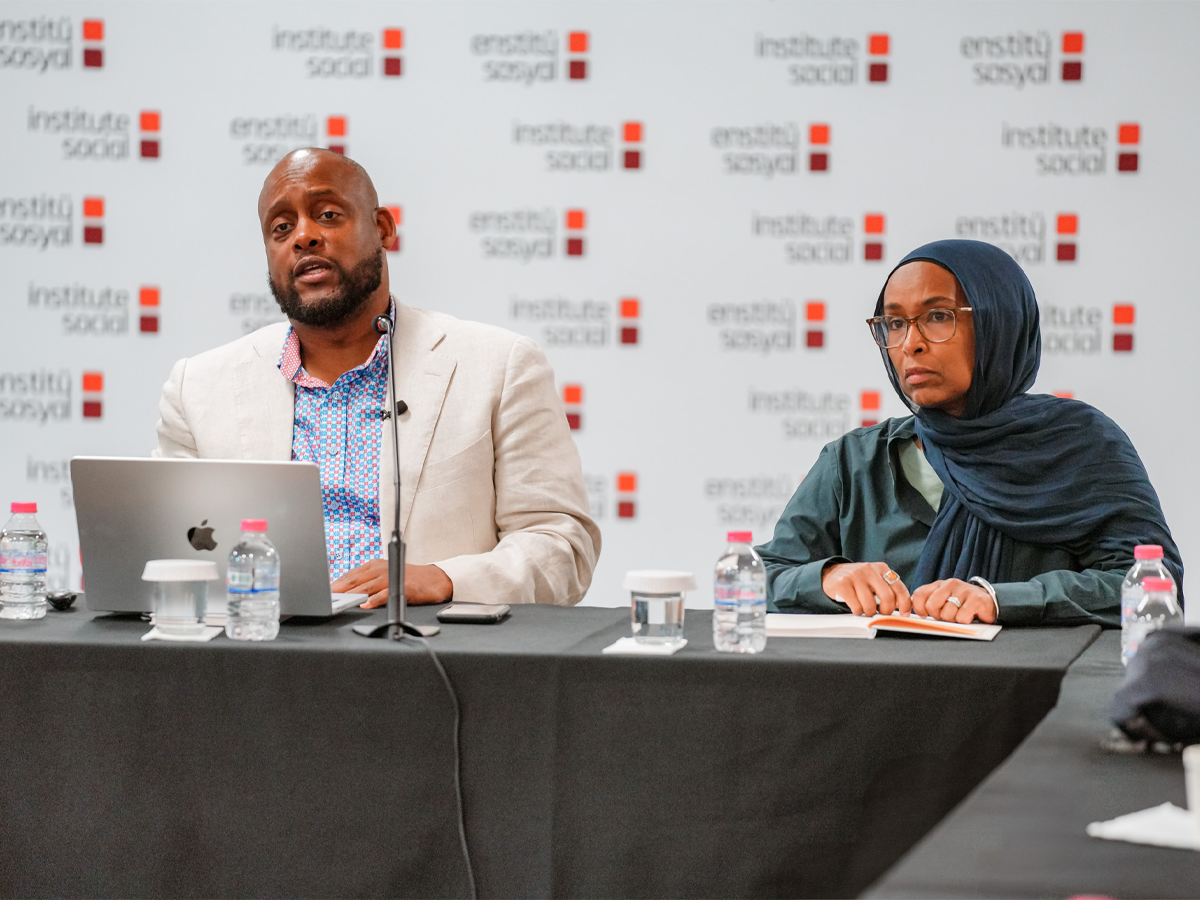
“A Decolonial Turn in Educational Leadership: From Resistance to Reconstruction” with Dr. Muhammad Khalifa
As part of its Global Reflections series, Institute Social recently hosted educational scholar Dr. Muhammad Khalifa from the Ohio State University. Dr. Khalifa is a pioneering academic known for his field based work on culturally responsive leadership, community based knowledge systems, and the creation of liberatory educational spaces, particularly in primary and secondary schools across both urban and rural settings.

Khalifa highlighted how colonial thinking continues to persist in education systems and stressed the importance of culturally responsive leadership in transforming these systems. Drawing attention to the distinction between colonialism and coloniality, he explained that while colonialism as a historical and political practice may have ended, the intellectual framework it produced and legitimized — coloniality — continues to exist. At its core, he noted, lies the belief that some societies are inherently superior to others.
He pointed out that colonial education systems have been adopted not only in colonized regions but also in non-colonized contexts. “In such systems, you have no choice; colonial assumptions are embedded in the very fabric of the system,” Khalifa remarked, underlining the need for a radical “rethinking” of education. He also emphasized that leadership should be built not on obedience but on inspiration and relationship-building. “One of the most destructive effects of colonial thinking is that it removes the human element from relationships. This weakens our bonds and turns interactions into mechanical structures governed solely by rules and authority. For example, if you want a teacher in your school to grow and, instead of inspiring them, you simply use your position and say, ‘I’m the principal, do as I say,’ you promote compliance, not growth. This approach is a product of colonial ways of thinking.”
Khalifa argued that school leaders, teachers, and educators should rely on empathy and community knowledge rather than rigid rules to support the development of others. In this context, he stressed that multicultural, equity-focused, non-judgmental, and community-informed leadership and education models can only be achieved by directly confronting colonial thinking. Such a transformation, he added, must be supported not only by discourse but also by concrete changes that transform structures, institutions, and relationships.
The event concluded with a Q&A session.
For more information, you can watch our video:https://youtu.be/AxOUmSAC4Ds?si=4xLvqv1fvCz17kRn
